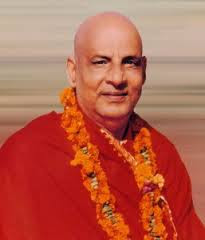HINDU FASTS & FESTIVALS : 5-1.
5. Guru Purnima : 1.
THE FULL moon day in the month of Ashad (July-August) is an extremely auspicious and holy day of Guru Purnima.
On this day, sacred to the memory of the great sage, Bhagavan Sri Vyasa, Sannyasins settle at some place to study and discourse on the thrice-blessed Brahma Sutras composed by Maharishi Vyasa, and engage themselves in Vedantic, philosophical investigation.
Sri Vyasa has done unforgettable service to humanity for all times by editing the four Vedas, writing the eighteen Puranas, the Mahabharata and the Srimad Bhagavatam.
We can only repay the deep debt of gratitude we owe him, by constant study of his works and practice of his teachings imparted for the regeneration of humanity in this iron age.
In honour of this divine personage, all spiritual aspirants and devotees perform Vyasa Puja on this day, and disciples worship their spiritual preceptor.
Saints, monks and men of God are honoured and entertained with acts of charity by all the householders with deep faith and sincerity.
The period Chaturmas (the “four months”) begins from this day; Sannyasins stay at one place during the ensuing four rainy months, engaging in the study of the Brahma Sutras and the practice of meditation.
Mark fully the deep significance of this great day.
It heralds the setting in of the eagerly awaited rains.
The water drawn up and stored as clouds in the hot summer now manifests in plentiful showers that usher in the advent of fresh life everywhere.
Even so, all begin seriously to put into actual practice all the theory and philosophy that have been stored up in them through patient study.
Aspirants commence or resolve to intensify with all earnestness, their practical spiritual Sadhana right from this day.
Swami Sivananda
To be continued ....


.jpg)


Comments
Post a Comment